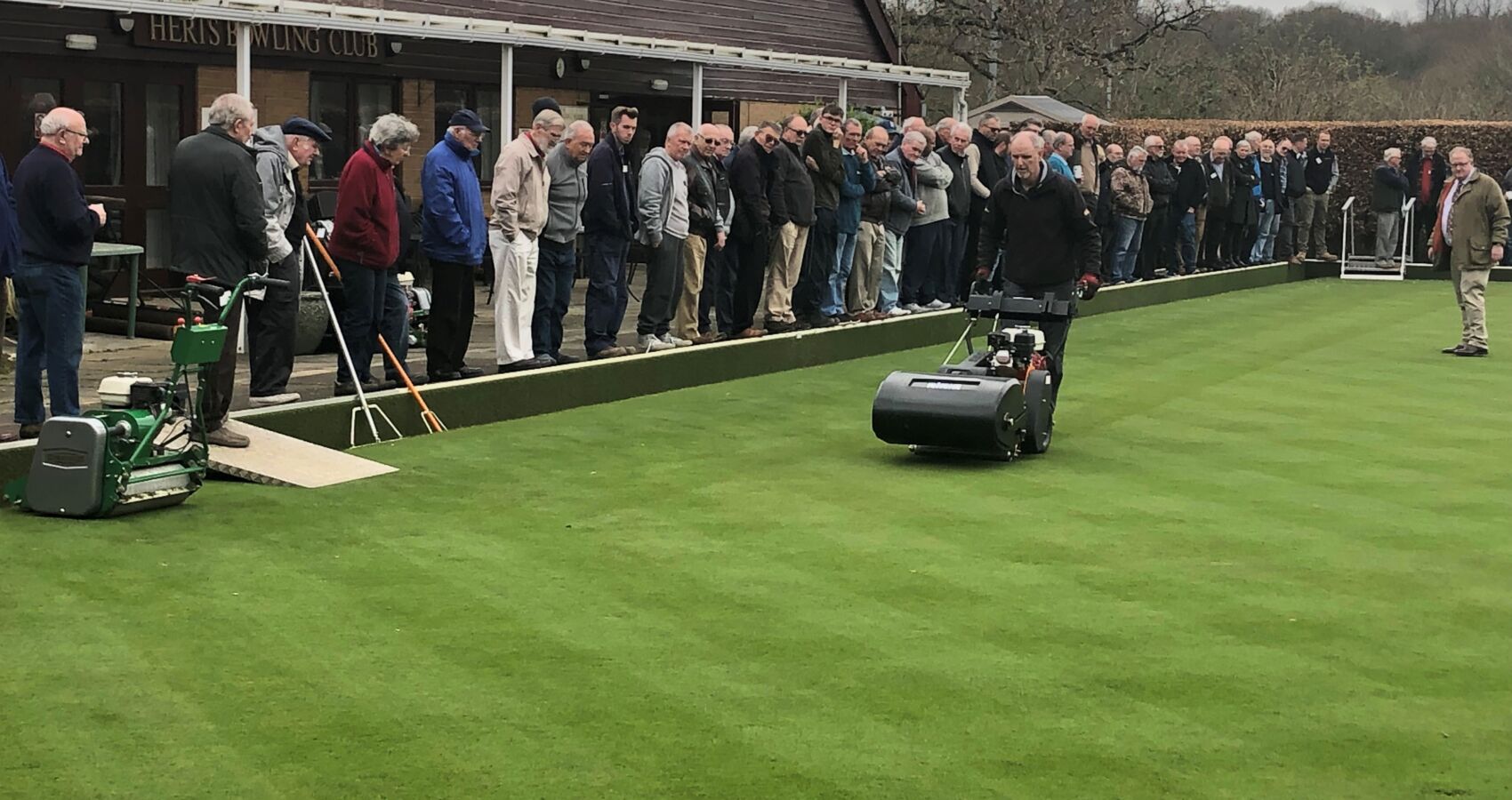
Official Greens Maintenance Supporter of Bowls England
Bowling greens truly are the beating heart of our sport. Bowls England is committed to helping clubs create the best possible environment for its participants to enjoy a superb bowling experience.
The quality of the green can be make or break for clubs and regardless of whether you are a private club that maintains their green completely, a local council maintained green or a club that employs a contractor, having the knowledge of how to provide the best surface is invaluable.
For all greens maintenance advice, support and resources Please visit the Dennis and SISIS portal where you will find insightful video content created to provide you with ideas, inspiration and advice for the maintenance of a wide range of sportsturf.
Visit the portal
Dennis Mowers & SISIS Equipment
As the official greens maintenance supporter of Bowls England, Dennis and SISIS offer a range of greens maintenance equipment that includes mowers, scarifiers, aerators, seeders and a range of hand tools such as dragbrushes and dragmats.
Renowned for reliability and long lasting these machines are the choice of greenkeepers when looking to maintain their greens to the highest levels.
Visit the Dennis website and the SISIS website.
Spraying Advice
You can apply fertiliser including Iron without a certificate if it does not contain a pesticide. If you need certification you need to do a PA1 Course to start, then either a PA2 or PA6 depending on what spaying you plan to do. Contact your nearest Horticultural or Agricultural College for training and testing.
Pesticides (which includes weed killers)
Below is the answer from the legal side and a link to a simple guide, but to put it simply you need to have a pesticide certificate if: –
- The club uses a professional chemical.
- The person applying the chemical is acting as a contractor and that would include payment in the form of free membership, pint over the bar etc.
The club can use domestic treatments from local garden centres for example, without a certificate, but it would expensive.
It is often cheaper to employ a contractor to supply and apply the chemical than the club purchasing the chemical. But ensure the contractor also holds all the certificates needed under pesticide legislation.
Why is Pesticides training important?
Ultimately the aim is to target the pest or plant whilst minimising any effect on the environment and surrounding plants or animals. This can occur through ‘spray drift’ (wind), crop run off (rain), seepage into soil, leaching into drainage and evaporation.
It is important to be able to select the product and method of application that is most efficient and lowest risk.
It is important also to understand how to store, dispose of pesticides and herbicides correctly.
Proper training on the use and application of pesticides and herbicides will help to keep you safe but also enable you to apply the chemicals efficiently and with minimum impact on the environment.
Why do I need a Pesticide certificate?
It is compulsory in many countries for users to be properly trained and certified in the use of pesticides and the requirement is backed by law under specific circumstances.
In the UK, anyone using a professional pesticide must either have a recognised specified certificate (previously known as a ‘Certificate of Competence’) or be working under the direct supervision, for the purposes of training, of someone who has such a certificate.
HSE Code of Practice states that everyone who uses pesticides professionally must be trained, but also in some situations the law requires that users must have an appropriate certificate of competence. The type of certificate needed will depend on the product you are using and your individual circumstances.
Further information on Pesticides use can be found here.


